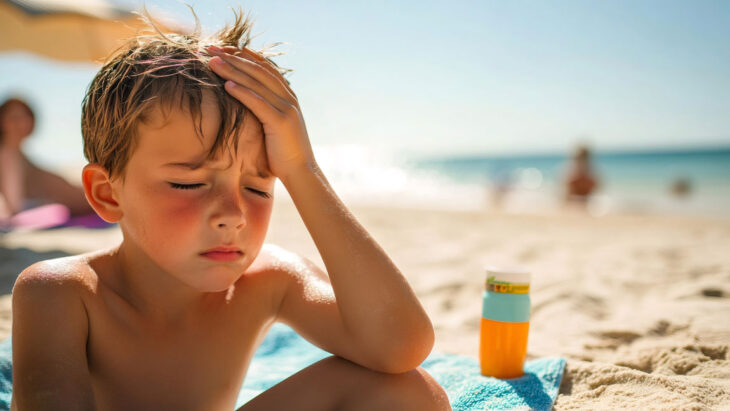By Dr. Christopher Blomberg

Summer is a time for family fun, but with its high temperatures and time spent in and on the water, it also comes with serious health risks. Memorial Family Medicine Specialist Dr. Christopher Blomberg shares some of the biggest dangers and how to spot heat-related illnesses so you can be prepared and protected.
“Sunburn, dehydration and heat exposure from the hot weather are some of the biggest risks,” he says, “but drowning, swimming and boating accidents are also more common this time of year.”
SPOTTING THE DIFFERENCE: HEAT EXHAUSTION VS. HEAT STROKE
The body’s inability to regulate temperature causes both heat exhaustion and heat stroke, but heat stroke is more severe and can be life-threatening.
- Heat Exhaustion
- Body temp: 101–104 degrees
- Muscle cramps, weakness and excessive sweating
- Heat Stroke
- Body temp: 104 degrees and above
- Confusion, irrational behavior and possible fainting
- Personality changes, central nervous system symptoms
“The main difference is determined by whether or not the nervous system is involved,” Dr. Blomberg explains. “Heat exhaustion is more about the cardiovascular system having difficulty keeping up. Heat stroke involves the central nervous system (the brain).”
TOP SUMMER SAFETY TIPS
Stay hydrated:
“Drink plenty of water and take frequent breaks,” Dr. Blomberg says. “Early signs of dehydration include decreased frequency of urination, increased thirst, dry mouth, fatigue and dizziness when changing positions from sitting or laying down to standing.”
Avoid extreme heat:
“Find shaded areas or stay inside to avoid the hottest parts of the day and wear light-colored clothes,” Dr. Blomberg says. “Taking frequent breaks and staying properly hydrated also helps prevent problems related to summer heat and sun exposure.”
Protect your skin:
“Apply sunscreen 15–30 minutes before activity, and reapply every two hours or after swimming,” Dr. Blomberg advises. “I recommend at least SPF 30, but overall, the higher the SPF, the better. For children younger than 6 months, protective clothes and staying in shaded areas are most important, as their skin is still developing and may be more sensitive to both sun and chemicals in sunscreen and lotions. Clouds do not block the damaging effects of the sun, and even on cloudy days, it is important to wear sunscreen.”
Be smart near water:
“Keep an eye on kids at all times, use floatation devices and work in shifts with other parents monitoring children,” he says. “Avoid alcohol and other substances if supervising or operating a boat.”
Plan ahead:
“Have sunscreen, water and supplies ready,” Dr. Blomberg says. “Kids are unaware of the dangers that surround them, and it’s important for adults to reduce those risks for them. Know what to expect, and have a plan about potential hazards in advance.”
With these precautions in mind, he adds, your family can have a safe, enjoyable summer!
Connect with Memorial Health via wearememorial.com or by calling (228) 867-5000.



